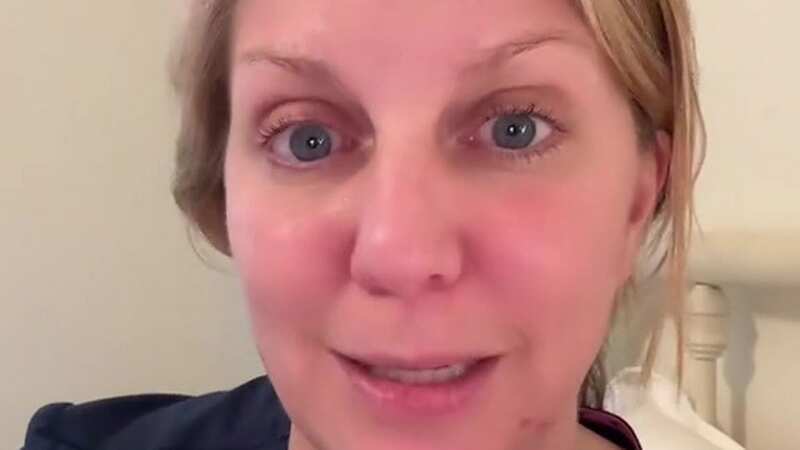Hospice nurse explains 'death rattle' sound people make just before passing away

A hospice nurse has shared her insight into a phenomenon known as the "death rattle" explaining the real meaning behind this breathing is that someone is nearing the end of their life. Julie McFadden, 41, is a palliative care nurse who looks after dying people. Based in sunny Los Angeles she's built up a huge following online by sharing her understanding to help people not be scared of death.
Recently, she posted on TikTok to talk about something that people often do when they're dying, revealing it's common for them to emit a “death rattle”. She explained: "The death rattle is the most normal thing and to be expected at the end of life. However, if you're not used to hearing it, it can feel like the scariest thing you've ever heard.”
Demystifying the common misconceptions people think about death, she revealed that the death rattle does not cause them pain or suffering. She went on: “Our body creates saliva 24/7, and our brain unconsciously tells us to swallow that saliva that's being created in our mouth all the time.
“At the end of life, the body is still creating that saliva in the mouth. However, the brain is no longer communicating for us to unconsciously swallow it. Also, these muscles right here are really weak, so we're not really swallowing anything. The person is usually fully unconscious with their mouths usually hanging open because their jaw muscles are so relaxed.”
Read more: Sign up to Mirror US's SMS updates for the latest straight from the newsroom
 Baby boy has spent his life in hospital as doctors are 'scared' to discharge him
Baby boy has spent his life in hospital as doctors are 'scared' to discharge him
Julie explained that because an unconscious person has their mouth open and saliva gathers, when they breathe through their mouth it can cause a “gurgle” noise. She continued: “People hear it, they don't understand it. They automatically assume it's coming from their lungs, and the person's, like, drowning on their own fluid. That is not happening. It's truly just a little bit of saliva that's gathered in the mouth. It's not bothering the person because the person is usually fully unconscious.”
Reassuring people, Julie added that even when people are unconscious they will display signs of unease with their body language. Sometimes, she continued, hospice workers will try and negate the rattle by either using medications to dry up the mouth, propping someone up in bed, or giving them a quick little turn so the saliva falls out of their mouth.
She continued: “We don't usually suction it like they would in the hospital because the suctioning will create more saliva. It can feel so scary when you hear it for the first time, so it's good to educate yourself about this so you know that it's normal and what to expect.”
Julie then gave a trigger warning that she was about to share a video with the sound of a “death rattle” indicating what to listen out for. She finished: “Remember, the whole point of me trying to educate about this and having you actually hear what it sounds like is to help normalize this very normal thing that happens at the end of life. So many people have written to me saying that hearing a death rattle traumatized them, and I feel like if we would have been educated about this before hearing it and knowing what it was, it may help lessen and dampen that fear a bit. Hope this helps.”
Viewers of the TikTok video rushed to comment and share their own experiences. One person wrote: “Heard the death rattle on Sunday. When my dad passed. This isn't for the weak it was horrible.” And someone else penned: “It traumatized me for sure. One moment I was holding my grandmother's hand & the next I heard the death rattle...devastating…” While another user replied: “Lost my aunt last Sunday.. and I heard the death rattle. I knew what it was because of your videos and was able to mentally prepare myself for her passing.. thank you for your videos.”
Read more similar news:
Comments:
comments powered by Disqus
































